 Activism and Politics have had a complex relationship with Hollywood. Now more than ever actors, directors, and many more associated with the media industry are using their voices, their positions, and their money to causes, political parties, and movements. More and more groups and reports are being generated stating the power of positive representation and even of the necessity of forward progress. Yet, despite the pressure and call for action, there still is heavy resistance, which can be most clearly seen during award season.
Activism and Politics have had a complex relationship with Hollywood. Now more than ever actors, directors, and many more associated with the media industry are using their voices, their positions, and their money to causes, political parties, and movements. More and more groups and reports are being generated stating the power of positive representation and even of the necessity of forward progress. Yet, despite the pressure and call for action, there still is heavy resistance, which can be most clearly seen during award season.
Another year and another Academy Awards show plays out politics, resistance, and movement (forward and the ever-constant backward slide of regression). For the third year in a row, the hashtag trend and movement #Oscarssowhite has caused people to boycott watching the award show, as well as refusing to pay money to watch the movies which were nominated that portray little or no of diversity of race and gender. I myself have not watched the Oscars for the last two years and am still on the fence if I will be tuning in to watch the entire show.
This controversy, boycott, and movement all stem from the very fact that despite movies that embody diversity being made and receiving lauded praise and attention, they are looked over time and time again for white washed movies, actors, and directors.
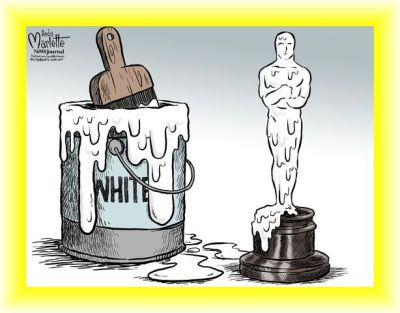
Selma was only given two nominations and Belle was completely blocked out of the Oscars in place of all white directors and actors like Mad Max: Fury Road, The Martian, and The Revenant to name a few. It was not the case that movies that did not focus on white issues were not being made: they were and they were even being praised and celebrated at other award shows and making money at the box office.
This year: Hidden Figures, Fences, Moonlight, and Lion are all up for Best Picture – all of them feature people of color.
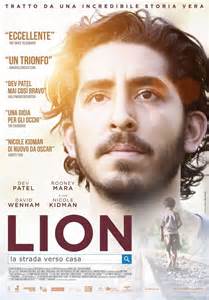
Whereas in the 2015 and 2016 Oscars, all 20 major nominations were given to white people, this year’s Oscars seem to finally breaking through the pale. On closer inspection through, this year’s Oscars, like many things in 2017, is not what it seems. Out of 6 nominations for Best Director, only one was given to a black man – and still no woman of color has been nominated in this category. Only 4 female directors have been nominated in the history of the Oscars. Only Kathryn Bigelow has received the award, in 2010, for the film The Hurt Locker which was largely a white film.
There are other discrepancies with the nomination designations given to people of color this year. Out of the four highly acclaimed films to choose from. only Denzel Washington received a Best Actor nomination. Only one woman of color was given the Best Female Actor nomination: Ruth Negga for the fantastic movie Loving (which did not receive any other nominations).
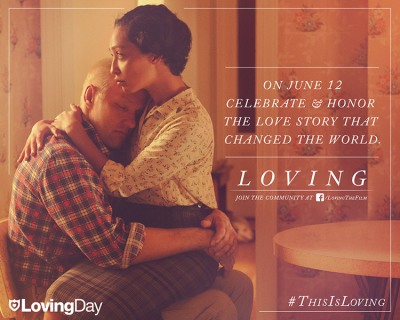
The critically acclaimed and beautifully done Hidden Figures only received 4 nominations and only one of the four main women in the cast was chosen—and for a supporting actress nomination. Viola Davis also received a supporting actress nomination for Fences–despite being credited as the number one female lead alongside Denzel Washington.
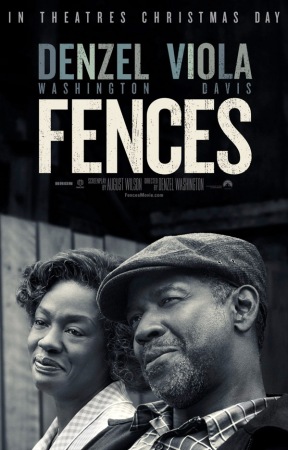
According to the Academy’s rules and regulations, it is up to the voting members to decide what deems a performance as lead and supporting. And as of 2012, the Oscar voters are 94% White and 77% male, which is not surprising as the Film Studio heads are 94% white and 100% male. These statistics have been highlighted and there has been a call for more diversity by both the Hollywood Diversity Report and the Geena Davis Institute on Gender in Media. The Geena Davis Institute is focused on making sure the representation of women in positive representations becomes one of the number priorities for Hollywood. Their tagline is “If she can see it, she can be it.” This ties into the recent push to get more girls into STEM programs (Science, Technology, Engineering, and Mathematics) and the resurrection of the real life contributions of educated and extremely smart Black women in our space program, which has been brought to life in the movie Hidden Figures.
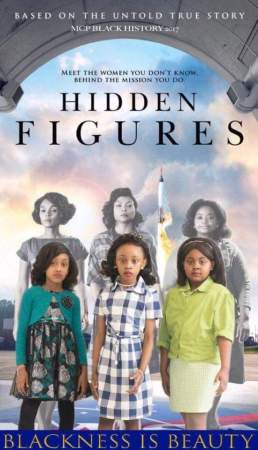
When Hidden Figures was conferred the SAG award for Best Cast, Taraji P. Henson stated in her acceptance speech…

We are living in a media age where movies, books, and plays can move mountains, can uncover the hidden players, and contribute to the struggles that ensure our progression, our forward movement as a society and as a culture. And yes it is still discouraging and disgraceful that the film academy has not yet begun adequately to reward and celebrate diverse, complex, and positive roles and movies for people of color.
But I have to mention that this award season has seen on the day of the ceremonies something worth praising. Presenters, winners, and attendees have voiced their protests, their views on acceptance, on tolerance, and on giving more roles to a diverse set of people. Meryl Streep’s now infamous speech censoring the current President (I won’t even give him the designation of “He Who Shall Not Be Named” so as not to taint the wonders of J.K. Rowlings works) has been watched by many. Actors have broken scripts to talk about their views on the immigration ban, on supporting women’s rights, and about justice. Despite the ever-present awarding of white privilege, there are speeches which call for positive, complex female characters, diverse casts, and now more than ever freedom of press.
#Oscarssowhite is still alive and well, yet people are finding more and more ways to make, produce, and distribute multifaceted movies which hopefully means that one day the only choices to be nominated will be of a rainbow nature.
Anjeanette LeBoeuf is a Ph.D Candidate in Women Studies in Religion at Claremont Graduate University. Her focuses are divided between South Asian religions and religion and popular culture. She has become focused on exploring the representations of women in all forms of popular culture and how religion plays into them. She is an avid supporter of both soccer and hockey. She is also a television and movie buff which probably takes way too much of her time, but she enjoys every minute of it. Anjeanette has had a love affair with books from a very young age and always finds time in her demanding academic career to crack open a new book.


Interesting post. The film industry has always struck me as quite racist and sexist: time for a change!
LikeLike
Yes, Hollywood has definitely had large periods where it functions in racism and sexism and then there are moments of progression! A lot like our history too!
LikeLiked by 1 person
I don’t know about you, but I turned off Manchester by the Sea about 1/2 way through. I thought the plot was contrived and the acting mediocre. But hey, it was about those “forgotten” white working class guys. I guess that is what it had going for it. And if that kid had been my nephew, I’d have told him that having two girlfriends who don’t know about each other is not cool, it is mean.
LikeLiked by 1 person
I agree with you Carol regarding the storyline of Manchester by the Sea. I didn’t even watch it due to being so over saturation of the struggling, lost white man.
LikeLike
It was a wonderful story about white men; I just wish there were more wonderful stories about other types of people – Moonlight, for example. Criticizing the industry for its preponderance of stories about white men doesn’t mean that an individual movie about white men can’t be good… many aren’t good, but Manchester by the Sea was. (Moonlight was better, though.)
LikeLike
There is also this: http://www.huffingtonpost.com/entry/casey-affleck-wins-best-actor-oscar_us_58a760ebe4b037d17d27bb48?21wa8xa8qazfflxr&
“In 2010, Affleck was accused of harassing two women on the set of the Joaquin Phoenix mockumentary “I’m Still Here,” which he directed. One of the women was Amanda White, a producer with whom he had worked for 10 years, and the other was the movie’s director of photography, Magdalena Gorka. Both claimed they were subject to inappropriate sexual comments and unwelcome advances, which you can read more about here. At the time, Affleck denied the allegations and countersued, but later settled the case out of court to the apparent satisfaction of all involved parties.”
LikeLiked by 1 person
Just to be clear, I was expecting to like Moonlight. I was disappointed in both the story and the acting.
LikeLike
Carol – you bring an extra point up regarding the sexual assault charges that have been brought up against Casey Affleck and to add more insult to injury – Hollywood has openly accepted and praised Casey even with the fact that the cases have reached settlement. Whereas black actor and director Nathan Parker who also has been linked to a horrific rape case was publicly shamed, ostracized, and had his movie tanked at the box office. It shows another layer of racism within our society and within Hollywood.
LikeLike
Thank you for this post. Movies, television, and popular music have such an impact on cultural perceptions and are such an opportunity to create awareness, which makes Hollywood’s male whiteness so distressing and frustrating. I’m hopeful that the commercial success of some of the movies you mention will push Hollywood to make more films by and about women and communities of color. When I saw “Hidden Figures” in a large and packed theater in Boston, the audience applauded at the end – you don’t see that happen often! There are so many wonderful films out there if we look for them. I also just saw “I Am Not Your Negro” about the civil rights movement through the work of James Baldwin – it is extremely powerful. I’m looking forward to seeing “The Eagle Huntress” this afternoon, which is about a documentary about a 13-year-old Mongolian young woman who decides that she will take on this very important role that has traditionally only been held by men.
LikeLiked by 1 person
Thank you for your comments Carolyn. I will definitely put “I Am Not Your Negro” on my must watch list.
And “The Eagle Huntress” sounds just as fascinating. Reminds me of the New Zealand film “Whale Rider” that came out a few years back.
And I am optimistically cautious and hopeful that Hollywood will start to truly take notion and start mainstreaming and awarding diverse films, actors, writers, and directors. It is also interesting in light of the political landscape we are in that Hollywood will become more of a haven and reactionary force!
LikeLike
I think you’ve made some great points here. Hollywood does seem like it suffers from a continual racism problem.
LikeLike
I think we are now at the stage were we understand the bare bones of how Hollywood function and its own politics – and that it truly does matter who is in charge of production houses, who is getting to direct, and who is allowed to write. Because there are qualified actors, writers, and directors who are complex and diverse but are not getting the mainstream spotlight.
LikeLike
Good thoughts; thanks. Just one point re: Viola Davis – she and the company behind her film actually chose to promote her performance as a supporting one as they thought she’d be more likely to win that way. Of course, this doesn’t contradict your points about racism in the Oscars… the very fact that they chose this strategy testifies to the fact that non-white actors face an uphill battle. In 2008, Davis deserved the Supporting Actress Oscar, but she lost it to Penélope Cruz. In 2012, she deserved the Lead Actress Oscar, but she lost it to Meryl Streep. This year, Davis would have deserved Lead Actress again if she had been in that category, but she probably would have unfairly lost it to Emma Stone. I’m glad such a great actor finally has an Oscar but look forward to the day when she and her white colleagues are treated more fairly.
LikeLiked by 1 person
You bring up an excellent point regarding the strategies one has to adopt in order to play into the skewed game. I was thrilled to see that Viola Davis won for supporting actress and that Mahershala Ali became the first Muslim actor to receive an Oscar for acting.
LikeLike
Don’t quite agree
LikeLike
I would be interested to know what you don’t agree with.
LikeLike